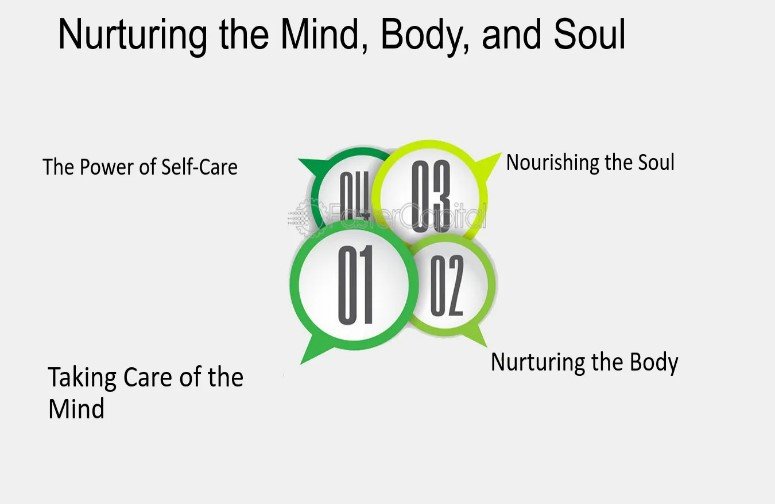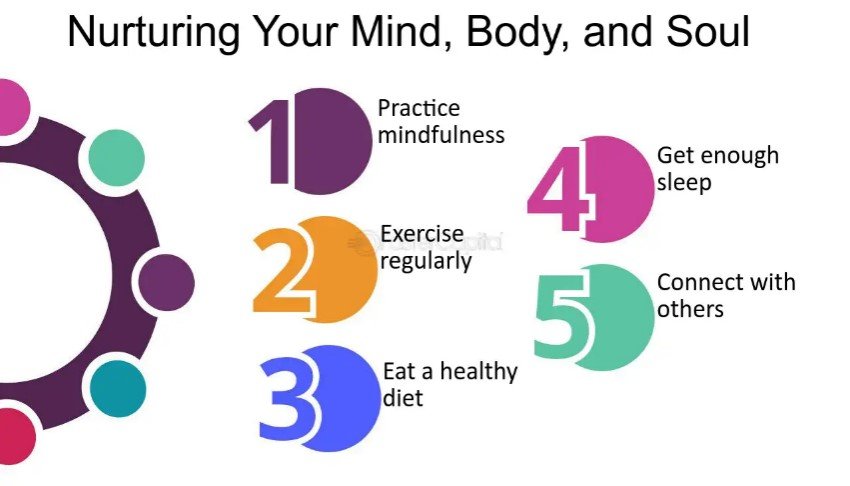Nourishing the Body, Nurturing the Soul

Nourishing the Body, Nurturing the Soul
Nourishing the Body, Nurturing the Soul: A Comprehensive Guide to Optimal Nutrition
In an era where the pursuit of health and wellness takes center stage, the importance of nutrition cannot be overstated. Fuelling our bodies with the right balance of nutrients sustains physical health and nurtures our mental and emotional well-being. In this comprehensive guide to optimal nutrition, we embark on a journey to uncover the intricacies of nourishing the body and nurturing the soul.
The Foundation of Health: Understanding Nutrition
Nutrition forms the cornerstone of our health, influencing every aspect of our well-being, from energy levels to disease prevention. At its core, nutrition is the science of how food nourishes our bodies, providing the essential nutrients needed for growth, repair, and overall vitality.
The Essential Nutrients: Building Blocks of Health
Macronutrients: These are the nutrients our bodies require in large quantities and include carbohydrates, proteins, and fats. Carbohydrates serve as the primary source of energy, proteins are essential for tissue repair and growth, and fats play crucial roles in brain function and hormone regulation.

Micronutrients: These are the vitamins and minerals our bodies need in smaller amounts but are equally vital for optimal health. From vitamin A to zinc, micronutrients support various physiological processes, including immune function, bone health, and energy metabolism.
Crafting a Balanced Diet: The Key to Wellness
A balanced diet is one that provides the right balance of macronutrients, micronutrients, and other essential components to meet our individual needs and support overall health. This involves incorporating a variety of whole, nutrient-dense foods into our daily meals, including:
Fruits and Vegetables: Packed with vitamins, minerals, fiber, and antioxidants, fruits and vegetables form the foundation of a healthy diet. Aim for a colourful array of fruits and vegetables to ensure a diverse range of nutrients.
Whole Grains: Option for whole grains such as brown rice, quinoa, oats, and whole wheat bread, which are rich in fiber , vitamins, and minerals. Whole grains provide sustained energy and support digestive health.
Lean Proteins: Choose lean sources of protein such as poultry, fish, tofu, legumes, and nuts. Protein is essential for muscle repair, immune function, and hormone regulation.
Healthy Fats: Incorporate sources of healthy fats such as avocados, nuts, seeds, olive oil, and fatty fish into your diet. These fats support heart health, brain function, and overall well-being.
The Mind-Body Connection: Nutrition and Mental Health
Beyond its physical benefits, nutrition plays a crucial role in mental and emotional health. Research suggests that a diet rich in whole foods, particularly fruits, vegetables, nuts, and fish, is associated with a reduced risk of depression and anxiety. Certain nutrients, such as omega-3 fatty acids found in fatty fish, and folate found in leafy greens, have been linked to improved mood and cognitive function.
Navigating Dietary Trends and Fads
In today’s age of information overload, navigating dietary trends and fads can be overwhelming. From keto to paleo to intermittent fasting, each diet comes with its promises of health and weight loss. However, it’s essential to approach dietary trends with caution and skepticism, ensuring they align with our individual needs, preferences, and values. Rather than jumping from one diet to the next, focus on cultivating a balanced, sustainable approach to eating that prioritizes whole, nutrient-dense foods.
Practical Tips for Healthy Eating
Plan Ahead: Take the time to plan your meals and snacks for the week, ensuring they are balanced and nutritious.
Read Labels: Pay attention to ingredient lists

Stay Hydrated: Drink plenty of water throughout the day to stay hydrated and support optimal bodily functions.
Practice Mindful Eating: Slow down and savor your meals, paying attention to hunger and fullness cues.
Listen to Your Body: Tune into your body’s signals and adjust your eating habits accordingly. Eat when you’re hungry and stop when you’re satisfied.
Conclusion: Embracing a Holistic Approach to Nutrition
In conclusion, optimal nutrition goes beyond counting calories or following restrictive diets—it’s about nourishing our bodies, minds, and souls. By embracing a holistic approach to nutrition that prioritizes whole, nutrient-dense foods, we can cultivate a foundation of health and wellness that supports us in living our best lives. Let food be thy medicine, and let nourishment be thy path to vitality and joy.

